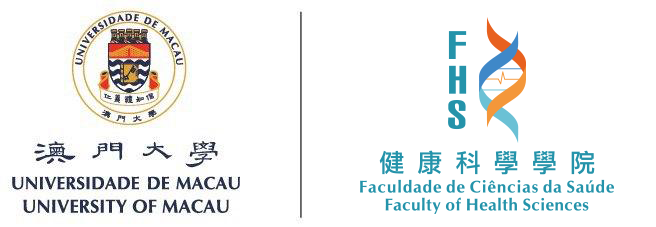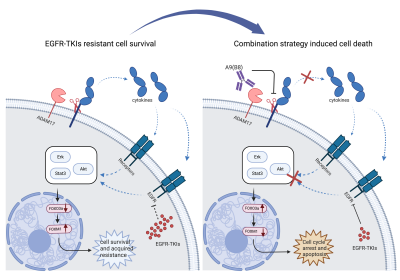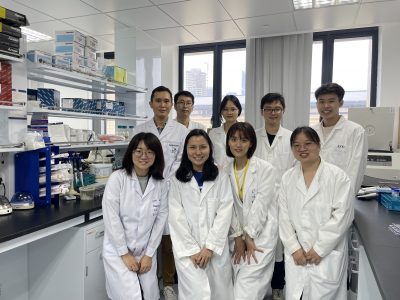A research team led by Henry Hang Fai KWOK, Associate Professor in the University of Macau (UM) Faculty of Health Sciences (FHS), has made a significant new progress in overcoming EGFR-TKI resistance. The research team has generated a novel combination strategy, “anti-ADAM17 A9(B8) antibody + erlotinib”, which can reverse the erlotinib resistance after acquired resistance. The research results have been published in the internationally renowned journal Cellular and Molecular Life Sciences.
With the identification of EGFR-activating mutations in some lung cancer patients, EGFR-TKI was applied to treat a subtype of lung cancer, Non-small cell lung cancer (NSCLC), specifically the cases with EGFR-activating mutations. Unfortunately, although EGFR-TKI was shown to remarkably improve the clinical outcome of this type of patient, most patients ultimately acquired EGFR-TKI resistance. Thus, there is a need to develop effective therapies that can overcome acquired EGFR-TKI resistance in these patients.
ADAM17 could cleave some cell surface receptors and cell surface proligand proteins, which drive resistance to chemotherapy in lung cancer patients. In the previous research, the research team has developed a highly specific novel human and mouse cross-reactive anti-ADAM17 antibody named A9(B8). It demonstrated that A9(B8) could control the solubility of numerous ligands, such as TNF-alpha and ErbB family receptors.
The research team then established the erlotinib-resistant cell line and treated it with the “A9(B8) + erlotinib” combination strategy to see the combination efficacy. The results showed that the combination of erlotinib and A9(B8) synergistically decreased the survival and tumorigenesis of the erlotinib-resistant cell line. The synergistic effect could also be observed in the xenograft erlotinib-resistant mice model. The research team also investigated the mechanism of the combination strategy in erlotinib-resistant NSCLC cells through RNA sequencing. The results demonstrated that the addition of A9(B8) could reverse the erlotinib resistance through the FOXO3a/FOXM1 axis.
Prof Henry, Hang Fai KWOK is the corresponding author of this study, and his PhD student Junnan LI is the first author. In addition, Dr Kin Iong CHAN from the Macau Kiang Wu Hospital has also made important contributions to the clinical research support of this study. The study was supported by the Science and Technology Development Fund (FDCT) Macao SAR (File No.: 0025/2019/A1 and 0027/2022/A1) and the UM (File No.: SRG2014-00006-FHS). The full version of the research study can be viewed at https://link.springer.com/article/10.1007/s00018-022-04647-x.



